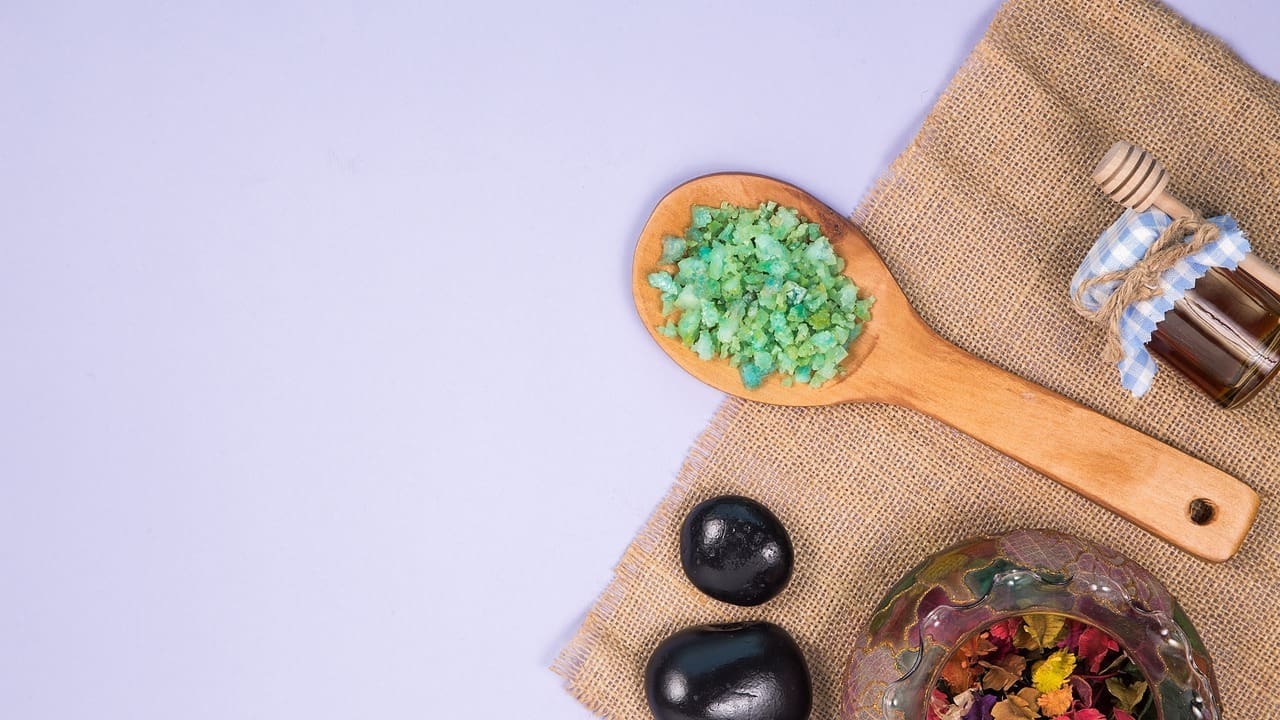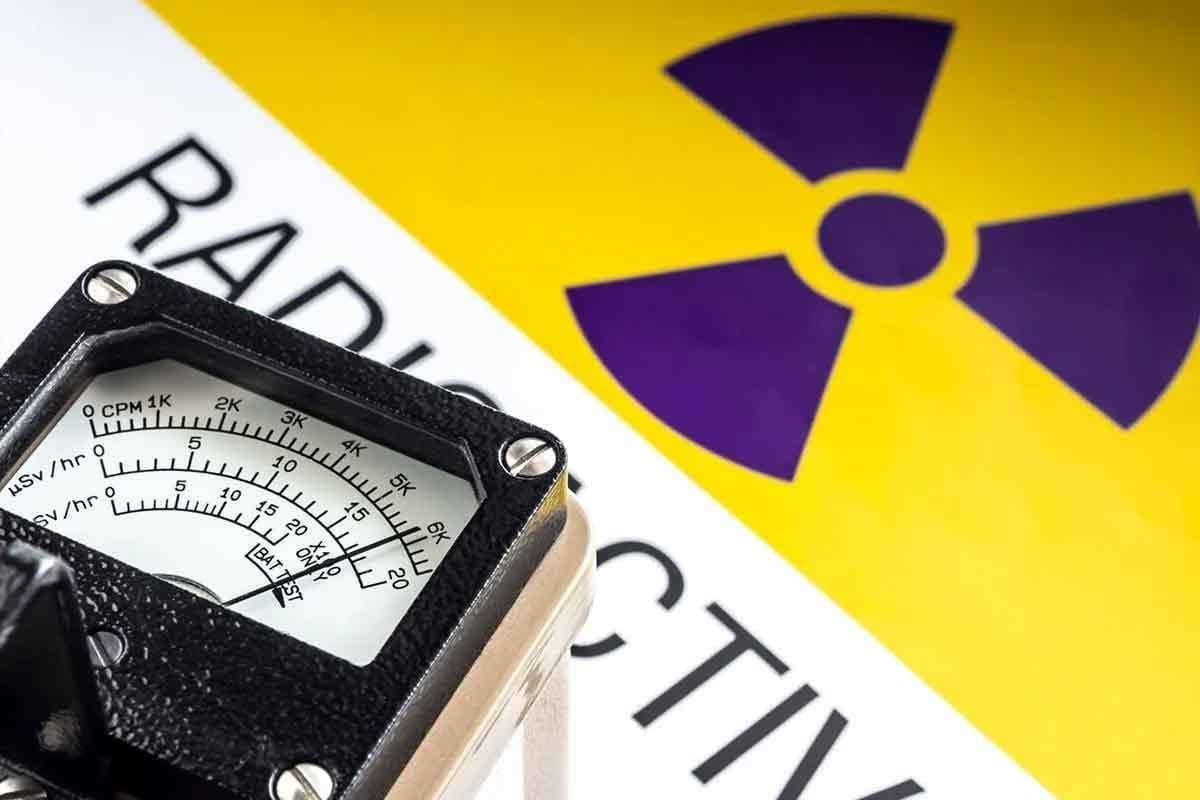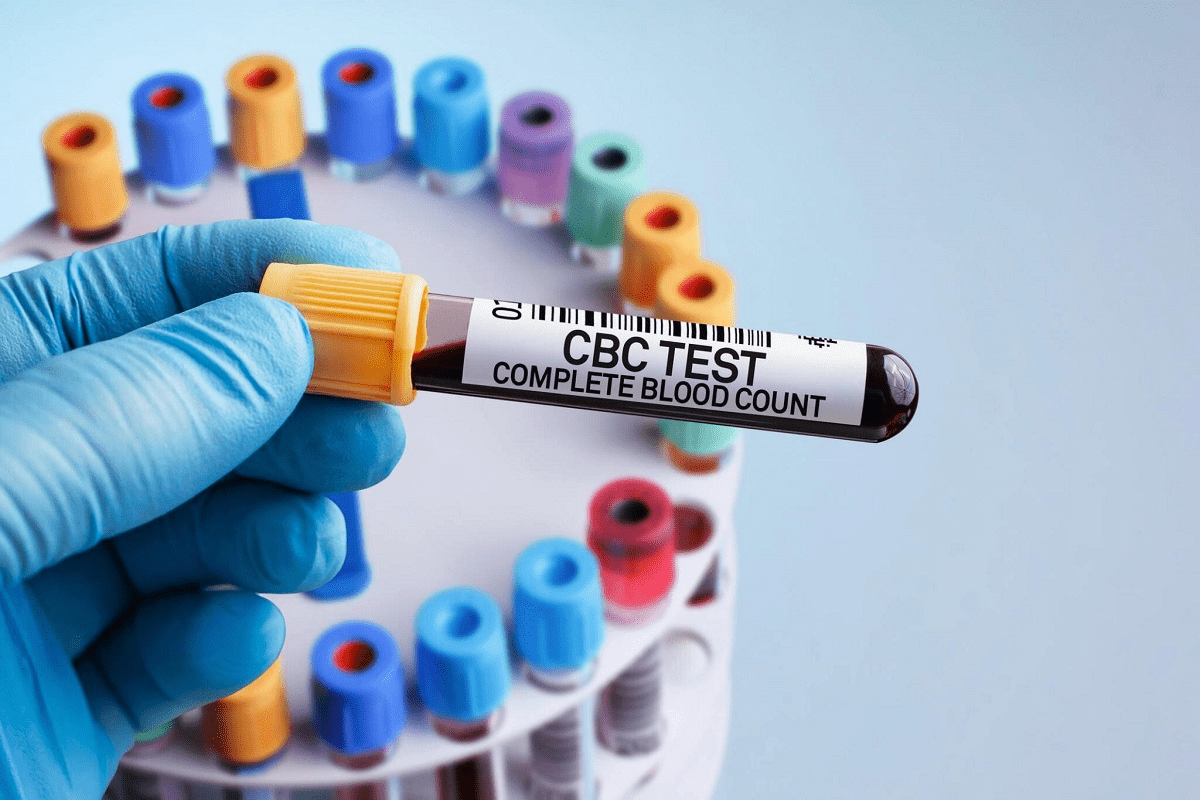Last Updated on November 27, 2025 by Bilal Hasdemir

At Liv Hospital, we know how vital it is to look at all treatment options for lymphoma. Studies show many lymphoma survivors use natural remedies like green tea and garlic. They also try holistic methods like acupuncture and yoga to help their treatment.
Combining alternative therapies with traditional treatments can make patients feel better. We’ll talk about seven holistic treatments and alternative therapies that might help lymphoma patients.
Key Takeaways
- Alternative therapies are increasingly being used by lymphoma survivors.
- Herbal supplements and holistic treatments can support conventional treatment.
- Integrating alternative therapies can enhance patient well-being.
- Liv Hospital offers a patient-centered, internationally acclaimed approach to integrative cancer care.
- Recent research supports the benefits of alternative therapies in lymphoma treatment.
The Rising Popularity of Alternative Therapies for Lymphoma
Lymphoma patients are now looking at alternative therapies to go along with their usual treatments. This move towards integrative medicine shows a growing need for care that covers all aspects of health. It’s not just about treating the disease but also taking care of the patient’s emotional and spiritual health.
Understanding Lymphoma and Its Conventional Treatments
Lymphoma is a cancer that attacks the immune system. It’s usually treated with chemotherapy, radiation, and immunotherapy. These methods are effective but can have harsh side effects that affect a patient’s life quality.
Why Patients Seek Complementary Approaches
Many patients look for ways to manage these side effects and feel better overall. Alternative therapies, like natural remedies and holistic treatments, help improve traditional care. They can ease symptoms, lower stress, and aid in healing.
Statistics on Alternative Therapy Usage
Research shows many lymphoma survivors are using alternative therapies. It’s found that 59% of lymphoma survivors have tried alternative therapies. Also, 70–90% have used holistic and natural treatments to handle lymphoma symptoms.
The growing interest in alternative therapies for lymphoma is clear. Patients want a more complete approach to their care. By understanding the benefits of complementary therapies, we can support patients better in their healing journey.
Natural Cures for Lymphoma: What Research Shows
Research into natural cures for lymphoma is growing fast. Many studies are looking into how complementary therapies can help. It’s clear that while traditional treatments are key, natural remedies are also getting attention for supporting patient care.
Clinical Studies on Complementary Therapies
Studies have shown that acupuncture can help with pain and nausea in cancer patients. Meditation and mindfulness can also improve life quality by lowering stress and anxiety. These findings suggest that adding complementary therapies to traditional treatments could be beneficial.
The Importance of Evidence-Based Approaches
Even though the studies look promising, it’s vital to focus on evidence-based methods. Patients should talk to their doctors before trying any new therapies. This makes sure the therapies are safe and won’t harm their main treatments.
Safety Considerations and Medical Supervision
It’s important to have a doctor’s watch when using natural remedies for lymphoma. Some herbal supplements can react with chemotherapy or other drugs. So, patients need to work with their healthcare team to see how these therapies work and make changes if needed.
Powerful Herbal Supplements for Lymphoma Support
Herbal supplements are becoming key in lymphoma care. They offer support alongside traditional treatments. We’ll look at the benefits of herbs and supplements for lymphoma, their effectiveness, and safety.
Green Tea Extract and EGCG
Green tea extract, with EGCG as its main component, shows promise against cancer. Studies suggest it can slow cancer cell growth and boost treatment results.
Dosage and Preparation Methods
The best dose of green tea extract for lymphoma is unclear. But, research uses 200 to 800 mg of EGCG daily. You can drink green tea or take supplements for a stronger dose.
Medicinal Garlic Compounds
Garlic compounds might fight cancer. Research shows garlic extracts could lower cancer risk and improve treatment results.
Flaxseed and Omega-3 Fatty Acids
Flaxseed is full of omega-3s and fiber, which might help fight cancer. It could also reduce inflammation and support health during treatment.
Echinacea for Immune Enhancement
Echinacea boosts the immune system. It might not directly treat lymphoma, but it could help the immune system stay strong and fight off infections.
| Herbal Supplement | Potential Benefits | Considerations |
|---|---|---|
| Green Tea Extract | Anti-cancer properties, may enhance conventional treatments | Optimal dosage not established, may interact with certain medications |
| Medicinal Garlic | Potential anti-cancer effects, may improve treatment outcomes | May interact with blood thinners, can cause digestive issues |
| Flaxseed | May reduce inflammation, promote overall health | High in fiber, may cause digestive changes |
| Echinacea | May enhance immune function, reduce infection risk | Effectiveness in lymphoma treatment not fully established |
Mind-Body Practices for Symptom Management
Mind-body practices are great for managing lymphoma symptoms. They connect the mind, body, and spirit. This offers a complete care approach for patients.
Meditation Techniques for Lymphoma Patients
Meditation helps reduce stress and anxiety in cancer patients. Mindfulness and loving-kindness meditation are very helpful. Mindfulness meditation keeps you in the present. Loving-kindness meditation builds compassion and kindness.
Yoga Poses That Support Lymphatic Flow
Yoga is a mix of poses, breathing, and meditation for well-being. Some poses help with lymphatic flow, important for cancer treatment. Good poses include:
- Downward-Facing Dog
- Cobra Pose
- Legs Up The Wall Pose
Adapting Practice During Treatment
Yoga needs to change with treatment and health. Gentle yoga is best during treatment. More intense yoga can be done after treatment.
Guided Imagery and Visualization
Guided imagery uses visualization for relaxation and healing. Patients imagine peaceful places or their immune system fighting cancer. It lowers anxiety and boosts well-being.
| Mind-Body Practice | Benefits for Lymphoma Patients |
|---|---|
| Meditation | Reduces stress and anxiety |
| Yoga | Supports lymphatic flow and overall well-being |
| Guided Imagery | Promotes relaxation and healing |
Physical Therapies That Support Lymphoma Recovery
Physical therapies are key in managing lymphoma symptoms and improving well-being. They help with pain, nausea, and side effects from treatment. This makes life better for patients.
Acupuncture for Pain and Nausea Relief
Acupuncture is an old practice that uses thin needles to help the body heal. It’s good for pain and nausea from lymphoma treatment. It also helps relax and reduce stress, making it a great addition to treatment.
Therapeutic Massage Benefits
Therapeutic massage can ease pain, anxiety, and tiredness. It boosts blood flow, relaxes muscles, and promotes calm. It’s a great part of a patient’s care plan.
Precautions During Active Treatment
Massage is good, but be careful during treatment. Tell your massage therapist about your treatment and any sore spots. Use gentle methods to avoid pain or harm.
Chiropractic Care Considerations
Chiropractic care can help with pain and keep patients moving. But, find a chiropractor who knows about cancer patients. They can adjust treatments to fit your needs.
| Therapy | Benefits | Precautions |
|---|---|---|
| Acupuncture | Pain and nausea relief | Ensure practitioner experience with cancer patients |
| Therapeutic Massage | Reduces anxiety and fatigue | Gentle techniques; avoid sensitive areas |
| Chiropractic Care | Improves mobility and pain management | Choose a chiropractor experienced in cancer care |
Nutritional Approaches to Healing Lymphoma Naturally
Nutrition is key in helping lymphoma patients recover. A balanced diet can ease symptoms, improve treatment results, and boost quality of life.
Anti-Inflammatory Diet Principles
An anti-inflammatory diet is vital for lymphoma patients. It focuses on foods that lower body inflammation. This helps fight cancer growth.
Foods to Emphasize and Avoid
To stick to an anti-inflammatory diet, know which foods to eat and avoid. Emphasize:
- Fatty fish like salmon and sardines
- Leafy greens like spinach and kale
- Berries and fruits high in antioxidants
- Whole grains like quinoa and brown rice
Avoid:
- Processed meats
- Sugary drinks and foods with added sugars
- Refined carbohydrates
Probiotics and Gut Microbiome Health
Probiotics are essential for gut health, which boosts immune function. Eating probiotic-rich foods like yogurt and kefir helps your body fight off diseases.
Cancer-Fighting Superfoods
Some foods may help fight cancer. These include:
- Turmeric, with curcumin
- Green tea, full of catechins
- Cruciferous veggies like broccoli and cauliflower
Meal Planning During Treatment
Good meal planning is vital during lymphoma treatment. Focus on nutrient-rich foods, drink plenty of water, and adjust your diet to manage side effects.
Stress Management Techniques for Lymphoma Patients
Managing stress is key for lymphoma patients to improve their treatment results and feel better. Chronic stress can harm the body’s ability to fight cancer. So, stress management techniques are vital for those getting treatment.
The Stress-Cancer Connection
Studies show that long-term stress can weaken the immune system, which can impact cancer growth. Stress management is not just about mental health; it also helps the body fight cancer. “The mind-body connection is very important in cancer treatment,” say researchers. Stress-reducing practices can lessen stress’s bad effects on the body.
Relaxation Therapies and Their Benefits
Therapies like meditation, deep breathing, and progressive muscle relaxation can lower stress in lymphoma patients. These methods not only manage stress but also boost overall health. They can make traditional treatments work better.
Daily Practices for Emotional Well-being
Doing daily activities like journaling, mindfulness, and enjoying nature can help emotional health. These activities help patients stay positive and reduce anxiety. By adding these to their daily life, patients can handle lymphoma treatment better.
Support Groups and Community Resources
Support groups and community resources are essential for emotional support and advice for lymphoma patients. Sharing experiences with others who face similar challenges can reduce feelings of loneliness.
“Support groups offer a safe space for patients to share their experiences and find comfort in knowing they are not alone.”
Using these resources is a big part of a good stress management plan.
Innovative Biological Therapies for Lymphoma Treatment
Medical research has made big strides in finding new ways to treat lymphoma. These new treatments offer hope to those who didn’t get better with old methods.
CAR-T Cell Therapy: A Breakthrough Approach
CAR-T cell therapy is a big step forward in fighting some lymphomas. It takes T cells from the blood, changes them to find cancer, and puts them back. So far, it’s shown great results in tests.
Immunotherapy Developments
Immunotherapy is a strong ally in the battle against lymphoma. It uses the body’s immune system to attack cancer cells. Some important advances include:
- Checkpoint inhibitors that help the immune system work better
- Monoclonal antibodies that find and kill specific cancer cells
- Cancer vaccines that help the body fight lymphoma
Who Benefits Most from These Treatments
These treatments are promising, but not everyone will benefit the same. The type and stage of lymphoma, and the patient’s health, are key in deciding if these treatments are right.
Targeted Therapy Options
Targeted therapies are another effective way to fight lymphoma. They aim at specific molecules that help cancer grow. Examples are:
- Bruton tyrosine kinase (BTK) inhibitors
- Phosphatidylinositol 3-kinase (PI3K) inhibitors
As research keeps moving forward, we’ll see more new treatments for lymphoma. This brings hope to those fighting this disease.
Creating an Integrated Treatment Plan
Creating a treatment plan that mixes traditional lymphoma treatments with alternative therapies can really help. This mix lets patients get the best of both worlds. It makes treatment more effective.
Communicating with Your Healthcare Team
Talking well with your healthcare team is key when adding alternative therapies to your plan. Keep a detailed log of any supplements or treatments you’re using. Then, talk about them with your oncologist.
- Inform your doctor about any herbal supplements or alternative therapies you’re considering.
- Discuss possible interactions between traditional treatments and alternative therapies.
- Ask about any clinical trials or studies on integrated treatment plans.
Monitoring for Herb-Drug Interactions
Some herbal supplements can affect how well traditional lymphoma treatments work. They might also increase side effects. It’s important to watch for these interactions with your healthcare team.
“The use of complementary therapies can be beneficial, but it’s essential to discuss them with your healthcare provider to avoid possible interactions.”
Questions to Ask Your Oncologist
- How might alternative therapies interact with my current treatments?
- Are there any complementary therapies that you’ve seen work well for lymphoma patients?
- How can we keep track of how I’m doing with this integrated treatment?
Tracking Your Response to Complementary Therapies
Keeping a detailed record of your experiences with complementary therapies is helpful. It lets your healthcare team adjust your treatment as needed. Track your symptoms, energy levels, and any side effects.
By working closely with your healthcare team and keeping open communication, you can make a treatment plan that’s just right for you. It will support your overall health and improve your lymphoma treatment.
Conclusion: Balancing Natural and Conventional Approaches
Lymphoma treatment can be seen from many sides. By mixing natural and traditional ways, patients get care that covers their body, mind, and spirit. We talked about natural remedies like herbs, mind-body practices, and food plans that help with treatment.
It’s key to mix these methods with traditional treatments for the best care. We stress the need to talk with your healthcare team. This way, patients can make smart choices about their care and get a more complete healing approach.
Our aim is to give lymphoma patients the tools and support they need. By blending natural and traditional methods, we aim for better results and a better life for those with lymphoma.
FAQ
What are natural remedies for lymphoma?
Natural remedies for lymphoma include herbal supplements and mind-body practices. Physical therapies and nutritional approaches also help. They support health when used with conventional treatments.
Can alternative therapies cure lymphoma?
Alternative therapies can help manage symptoms and support treatment. But, they should not be the only treatment for lymphoma. It’s best to use them with conventional treatments under a healthcare professional’s guidance.
Are there any clinical studies on natural cures for lymphoma?
Yes, studies exist on complementary therapies for lymphoma. These include herbal supplements, mind-body practices, and nutritional approaches. It’s important to use evidence-based approaches and get medical supervision.
How can herbal supplements support lymphoma treatment?
Herbal supplements like green tea extract and echinacea may boost the immune system. They can help with lymphoma treatment. But, always talk to a healthcare professional before using them to avoid interactions with other treatments.
What are the benefits of mind-body practices for lymphoma patients?
Mind-body practices like meditation and yoga can help manage symptoms. They reduce stress and improve well-being for lymphoma patients.
Can physical therapies like acupuncture and massage help with lymphoma symptoms?
Yes, therapies like acupuncture and massage can ease symptoms like pain. They can also improve quality of life for lymphoma patients. Always consult a healthcare professional before starting new therapies, even during treatment.
How does nutrition play a role in lymphoma treatment and recovery?
A balanced diet with anti-inflammatory foods and probiotics supports treatment and recovery. Working with a healthcare professional or dietitian to create a personalized nutrition plan is recommended.
What is the connection between stress and lymphoma?
Chronic stress can affect lymphoma treatment and health. Stress management techniques like relaxation therapies and support groups are helpful. They help cope with lymphoma’s emotional aspects.
What are biological therapies for lymphoma treatment?
Biological therapies like CAR-T cell therapy and immunotherapy use the immune system to fight lymphoma. They can be effective for some patients. Discussing their benefits and risks with a healthcare professional is essential.
How can I create an integrated treatment plan for lymphoma?
An integrated treatment plan combines conventional and alternative therapies. Work with a healthcare team to create it. Open communication and monitoring for interactions are key to a balanced plan.
Are there any natural ways to cure lymphoma?
There are no guaranteed natural cures for lymphoma. But, a holistic approach that includes conventional treatments and nutritional support can help. It supports overall health and well-being.
How can I manage lymphoma symptoms naturally?
Natural ways to manage symptoms include mind-body practices and nutritional support. Work with a healthcare professional to create a personalized plan. It should address your specific needs and health status.
What is holistic treatment for lymphoma?
Holistic treatment for lymphoma addresses physical, emotional, and spiritual health. It includes conventional treatments, alternative therapies, and lifestyle changes. This approach supports overall well-being.
Can alternative medicine help with lymphoma treatment?
Alternative medicine can help with symptoms and improve quality of life when used with conventional treatments. Always consult a healthcare professional to find the best approach for your needs.
References
- National Center for Biotechnology Information (NCBI) / PMC: https://pmc.ncbi.nlm.nih.gov/articles/PMC9900160/
- National Center for Biotechnology Information (NCBI) / PMC: https://pmc.ncbi.nlm.nih.gov/articles/PMC8352693/
- Medical News Today: https://www.medicalnewstoday.com/articles/curcumin-and-non-hodgkins-lymphoma
- Lymphoma Research Foundation (LRF): https://lymphoma.org/understanding-lymphoma/treatment-planning-and-options/integrative-oncology/
- Healthline: https://www.healthline.com/health/lymphoma/alternative-treatments








